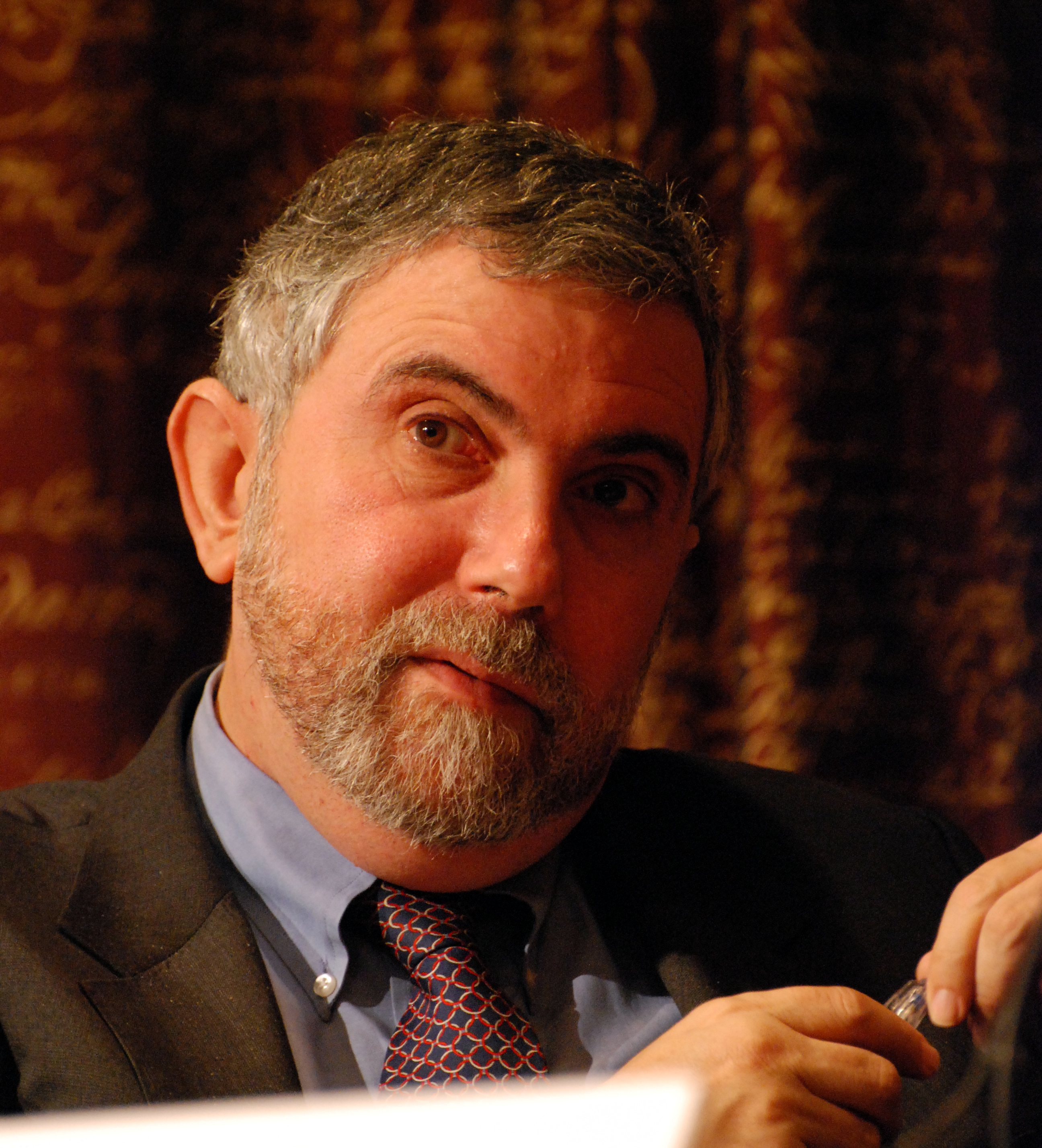Source: Peddling Prosperity (1994), Ch. 1 : The Attack on Keynes
Paul Krugman Quotes
The New York Times Columns, The Populism Perplex (November 25, 2016)
"Who Was Milton Friedman?", The New York Review of Books (February 15, 2007)
The New York Review of Books articles
Sanders Over The Edge http://www.nytimes.com/2016/04/08/opinion/sanders-over-the-edge.html (April 8, 2016)
The New York Times Columns
Development, Geography, and Economic Theory (1995), Ch. 1. The Fall and Rise of Development Economics
Op-ed, "Franklin Delano Obama," New York Times, November 10, 2008 http://www.nytimes.com/2008/11/10/opinion/10krugman.html
The New York Times Columns
"Baby-Sitting the Economy", Slate (Aug. 13, 1998)
"The Curious Politics of Immigration" http://krugman.blogs.nytimes.com/2010/04/26/the-curious-politics-of-immigration/, 26 April 2010, The Conscience of a Liberal blog at The New York Times
in Paul Krugman Interview https://www.youtube.com/watch?v=Z-8yFPTwhKs&feature=youtu.be&t=363 by Norwegian TV channel NRK (January 8, 2014)
Source: The Return of Depression Economics and The Crisis of 2008 (2009), Chapter 10. The Return of Depression Economics
Source: The Conscience of a Liberal (2007), Ch. 13. The Conscience of a Liberal
Paul Krugman and Richard Layard, "A Manifesto for Economic Sense" (June 27, 2012)
"Who Was Milton Friedman?", The New York Review of Books (February 15, 2007)
The New York Review of Books articles
"Who Was Milton Friedman?", The New York Review of Books (February 15, 2007)
The New York Review of Books articles
"Who Was Milton Friedman?", The New York Review of Books (February 15, 2007)
The New York Review of Books articles
Epilogue
Peddling Prosperity (1994)
"The Big Zero", The New York Times (27th December, 2009)
Pop Internationalism (1996), Competitiveness: A Dangerous Obsession (1994)
Preface
The Self-Organizing Economy (1996)
"Ricardo's Difficult Idea," in G. Cook (ed.), Freedom and Trade: The Economics and Politics of International Trade, Volume 2 (1998)
Introduction
Fuzzy Math: The Essential Guide to the Bush Tax Plan (2001)
"The Hangover Theory", Slate (Dec. 4, 1998)
Development, Geography, and Economic Theory (1995), Ch. 2. Geography Lost and Found
Pop Internationalism (1996), Competitiveness: A Dangerous Obsession (1994)
Introduction of Pop Internationalism (1996)
Pop Internationalism (1996)
“What does Alexandria Ocasio-Cortez know about tax policy? A lot.”
5 January 2019, New York Times
The Conscience of a Liberal blog
"Why We’re in a New Gilded Age", The New York Review of Books (May 8, 2014)
The New York Review of Books articles
God Is Now Trump’s Co-Conspirator https://www.nytimes.com/2019/10/14/opinion/trump-william-barr-speech.html (October 14, 2019)
The New York Times Columns
“With great wealth comes great pettiness.”
Warren Versus the Petty Plutocrats https://www.nytimes.com/2019/09/30/opinion/elizabeth-warren-wealth-tax.html (September 30, 2019)
The New York Times Columns
But the essential truth of Keynes’s big idea - that even the most productive economy can fail if consumers and investors spend too little, that the pursuit of sound money and balanced budgets is sometimes (not always!) folly rather than wisdom - is as evident in today’s world as it was in the 1930s. And in these dangerous days, we ignore or reject that idea at the world economy’s peril.
"Why aren't we all Keynesians yet?", Fortune (Aug. 3, 1998)
Source: Development, Geography, and Economic Theory (1995), Ch. 3. Models and Metaphors
Source: Development, Geography, and Economic Theory (1995), Ch. 3. Models and Metaphors
Source: Peddling Prosperity (1994), Ch. 2 : Taxes, Regulation, and Growth
comment on Trump Is Abusing His Tariff Power, Too https://www.nytimes.com/2020/01/23/opinion/trump-auto-tariff.html#commentsContainer (January 23, 2020)
The New York Times Columns
